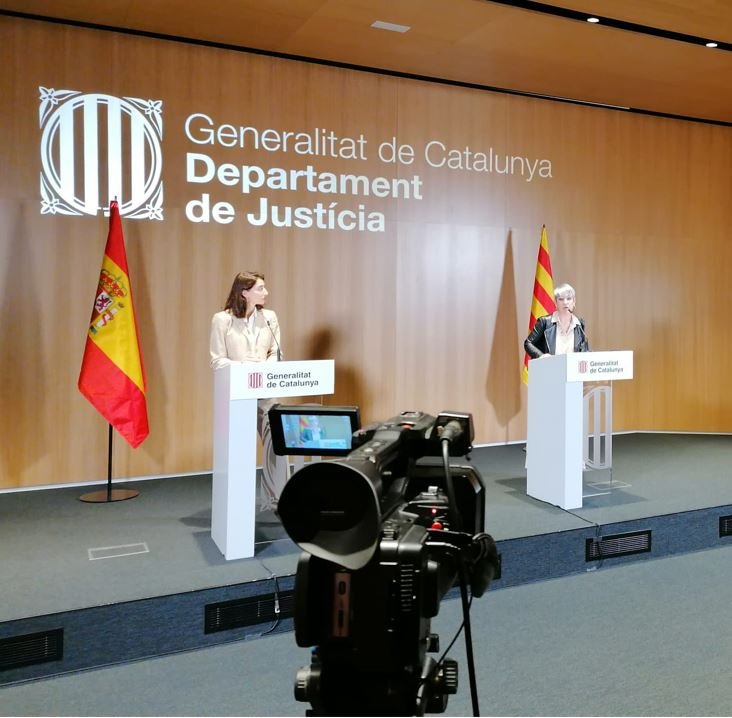Kicking the can down the road. The Spanish justice minister, Pilar Llop, has not clarified whether the Spanish government will demand the application of the ruling that imposes a 25% quota of Castilian (Spanish) as the teaching language in Catalan schools sentence, at the expiry of the two month period given by the Catalan High Court (TSJC) to the education authorities to implement it in all schools in Catalonia. "In a state of law, court rulings are to be enforced. But we do not know what arguments the Catalan government will present and, therefore, I cannot venture anything ", said Llop this afternoon, after a meeting with her Catalan justice counterpart, Lourdes Ciuró. In the press conference that the two held in Barcelona, Ciuró did state that "language immersion is a model of success in Catalonia". Journalists pressed the Spanish minister for more specifics, but she only added that "in the field of education and politics, languages should not be used to confront, however, it is the state solicitors that are responsible for deciding whether to ask the Catalan High Court to oblige the Catalan education department to make this change in quotas.
In addition, Pilar Llop closed the door on the reforming of the offences of rebellion and sedition, which Ciuró stated that she had demanded at the meeting, in order to comply with the resolutions of the Council of Europe. "We are only obliged to comply with the rulings of the European courts," countered the Spanish minister, adding that the Pedro Sánchez government has other priorities at present, such as the passing of laws on housing and labour reform, to promote recovery" in Spain. Catalan president Pere Aragonès described the language ruling this weekend as "an educational 155" - a reference to the Spanish constitutional article 155, under which the central government can take over powers from an autonomous communities in exceptional circumstances.
Salary supplement for judges in Catalonia
As for the salary supplement for judges who work in Catalonia to avoid the large number of vacancies, which the TSJC governing body and all the judicial associations have asked for, the minister only detailed that "it is under study". Llop explained that she had asked the president of the TSJC, Jesús Maria Barrientos, "for a study of the reasons for this flight of judicial talent" from Catalonia, and also said that the supplement could also be paid to other officials in the field of justice, such as prosecutors. Prior to the meeting with the Catalan justice head, the Spanish minister also visited the Justice City complex in Barcelona, where she met with the president of the TSJC and the chief prosecutor of Barcelona, Concepción Talón, as well as the senior state solicitor of Catalonia, Francisco Bañeres, and other judicial officials.
In her speech, the Catalan justice minister explained that she had proposed to the Spanish minister that her department would work in three priority areas. The first, is to improve funding, such as the judicial fees collected in Catalonia being invested here, and to improve the financial resources to make new courts, which have "outdated measurements", which are from 1996 and do not include, for example expenditure on new technologies. On the subject of the fees, the minister admitted that she would have to talk to the finance ministry, given that it is this ministry that collects and distributes the money. The second Catalan priority mentioned is to develop the Statute of Autonomia of Catalonia and especially the Council of Justice in Catalonia, an area in which the minister has not specified any details; as well as the respect for all citizens to use their own language when going to court. Finally, in the more political sphere, Ciuró gave as a priority the tackling of the reform of the offences of rebellion and sedition. This is the only demand about which the minister Llop gave a clear response: "It is under study, but it is not a priority."

